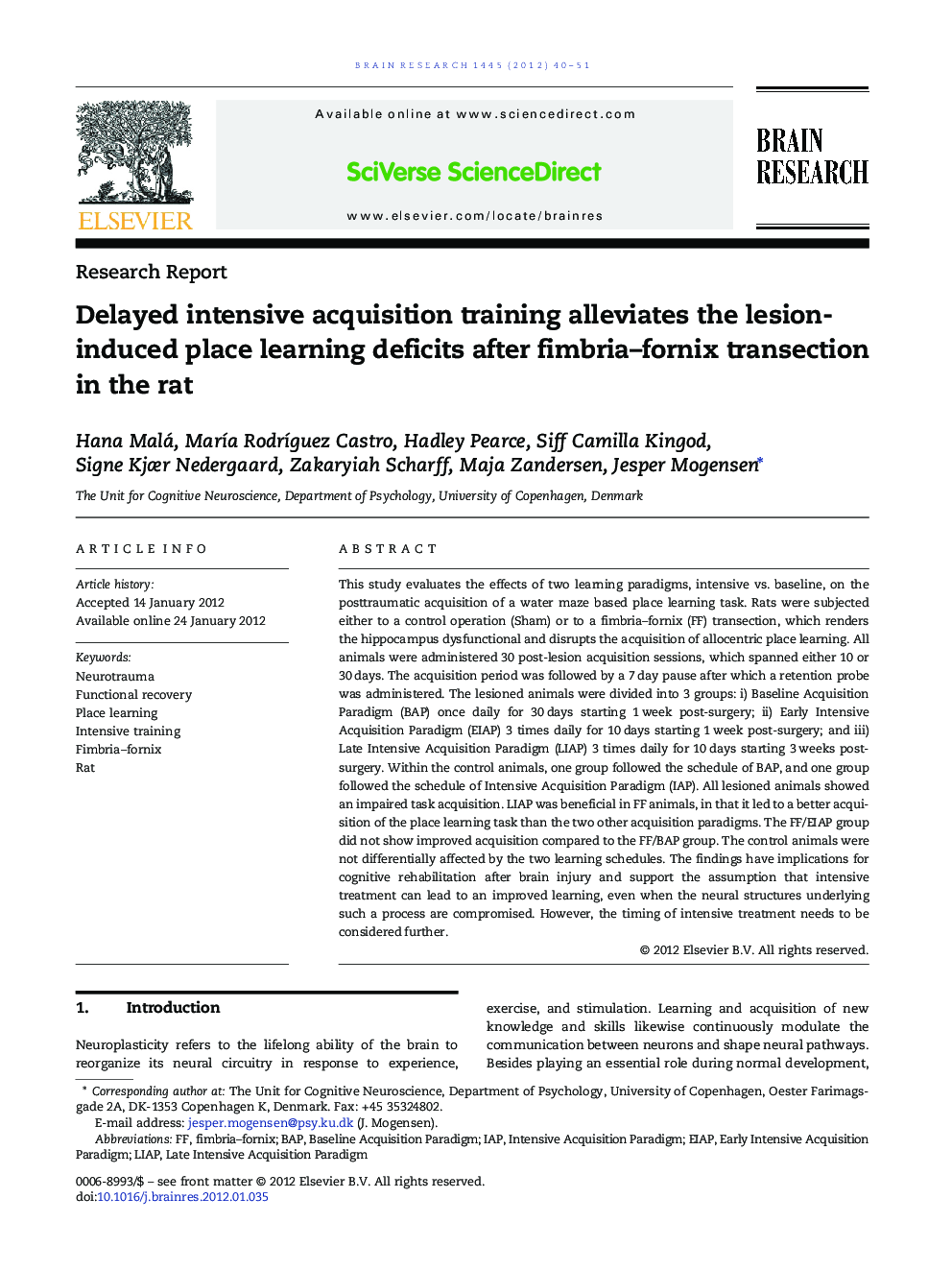| کد مقاله | کد نشریه | سال انتشار | مقاله انگلیسی | نسخه تمام متن |
|---|---|---|---|---|
| 4325374 | 1613994 | 2012 | 12 صفحه PDF | دانلود رایگان |

This study evaluates the effects of two learning paradigms, intensive vs. baseline, on the posttraumatic acquisition of a water maze based place learning task. Rats were subjected either to a control operation (Sham) or to a fimbria–fornix (FF) transection, which renders the hippocampus dysfunctional and disrupts the acquisition of allocentric place learning. All animals were administered 30 post-lesion acquisition sessions, which spanned either 10 or 30 days. The acquisition period was followed by a 7 day pause after which a retention probe was administered. The lesioned animals were divided into 3 groups: i) Baseline Acquisition Paradigm (BAP) once daily for 30 days starting 1 week post-surgery; ii) Early Intensive Acquisition Paradigm (EIAP) 3 times daily for 10 days starting 1 week post-surgery; and iii) Late Intensive Acquisition Paradigm (LIAP) 3 times daily for 10 days starting 3 weeks post-surgery. Within the control animals, one group followed the schedule of BAP, and one group followed the schedule of Intensive Acquisition Paradigm (IAP). All lesioned animals showed an impaired task acquisition. LIAP was beneficial in FF animals, in that it led to a better acquisition of the place learning task than the two other acquisition paradigms. The FF/EIAP group did not show improved acquisition compared to the FF/BAP group. The control animals were not differentially affected by the two learning schedules. The findings have implications for cognitive rehabilitation after brain injury and support the assumption that intensive treatment can lead to an improved learning, even when the neural structures underlying such a process are compromised. However, the timing of intensive treatment needs to be considered further.
► Two learning paradigms (intensive vs. baseline) in posttraumatic acquisition of a spatial task after hippocampal injury.
► Intensive acquisition paradigms administered over a shorter period of time enhance posttraumatic allocentric place learning.
► The effects achieved by intensive learning schedules are sensitive to the length of posttraumatic pause.
► The results carry important implications for cognitive rehabilitation of brain injured patients.
Journal: Brain Research - Volume 1445, 22 March 2012, Pages 40–51